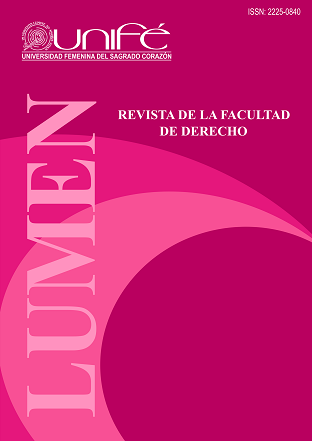The omission of the doll by the legislator in the assume of the fact of article 1233 ° of the Cvil Code
DOI:
https://doi.org/10.33539/lumen.2018.v14n1.1207Keywords:
obligations, benefits, creditor, debtor, payment, malice, blame, assumptions, securities, protest, enforcement order, damage, primitive obligation.Abstract
The article 1233 of the Peruvian Civil Code from 1984 developed while the repealed “Securities Act No. 16587” was still in force and regulating only four securities: The bill of exchange, promissory note, check and voucher to order. At present, have been added to the first three mentioned, a large number of securities that incorporate rights of various kinds that can fit into a promise or a payment order, that generates the need to analyze in depth the scope of the regulation. Additionally, the article analyzed, influenced by foreign law, has not provided the intentional act of the creditor, limited only to blame and not malice. This allows us to affirm the existence of unregulated behaviors with no specific legal consequence. The above described generates the need to modify this regulation and link it deeply to the “Obligations Theory” and in the new “Securities Act No. 27287









